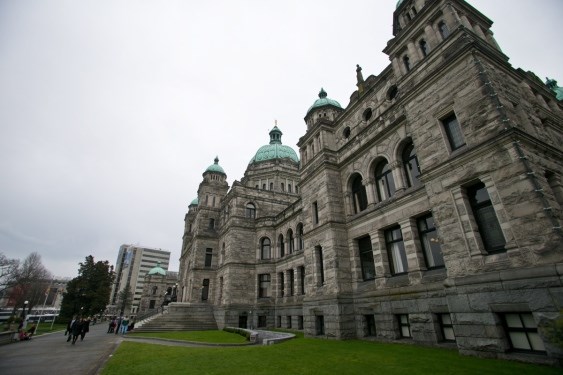The opening of the NDP’s first throne speech sounded as if they’re still in opposition.
Where governments normally congratulate themselves for all the wonderful things that are happening, the inaugural agenda painted a bleak picture of scarcity and need.
High tuition and housing costs have put education dreams out of reach. “Students graduate with a burden of debt that holds them back just as they are starting out.”
Many parents have to leave the workforce because child-care wait lists are too long, or care is too expensive.
Seniors are struggling to find medical care.
Housing prices are so unaffordable they’re pushing families out — “a situation as astonishing as it is unacceptable.” All those problems are the result of past choices, made by you-know-who.
Crowded classes, growing wait lists and the rise of part-time, low-paying jobs have divided people and “created disparities between rural and urban B.C.”
That was the setup to the recognition that these are all NDP problems now.
“We will listen, deal honestly with the problems facing us today, and bring people together to find solutions. We will defend B.C.’s interests, economy, environment and our coast. And we will share B.C.’s prosperity with all the people who built this province.”
It’s a long, complicated list of issues on the to-do list, so long that the government is already begging for time to solve them. “Many of the problems facing people today have deep roots in the past. … It will take time to find the right solutions.”
The speech warned that the government can’t deliver lasting solutions before it understands the heart of the matter. That means a lot of listening tours and consultations.
The NDP has moved decisively on some funding increases and toll cuts in the early days. But on things such as the Massey Tunnel replacement and the Site C dam, it’s clear they don’t know what to do. Patience will be extended for a period of months, but the government has to make up its mind on some expensive issues in the near future.
The lurking danger is that the government’s top-priority item — the electoral reform that clinched the Green caucus support — will suck up all the consultation time that other pressing issues need. Electoral reform is a black hole that could eat up years, but the speech promises a referendum on it in 14 months, or sooner.
You can only listen to so many arguments at the same time.
Just So You Know: The B.C. Liberal caucus opened its term in opposition with a striking display of toxic internal strife. It brought home how much the past four months of confusion and tension have cost them. Over 16 years in power, the Liberals had a good record of keeping teamwork problems to a minimum.
Those days are gone.
Liberal MLA Darryl Plecas’s calculated decision to break ranks would have been unthinkable until recently. He backtracked on all his fervent denials that he would ever try to become Speaker and grabbed the job the first chance he got. It’s the biggest breach in unity since former minister Bill Bennett flamed out on former premier Gordon Campbell seven years ago. And this one is far more serious, because of the arithmetic behind it.
Plecas as Speaker means the Liberals lose another vote on the floor of the house, giving the NDP-Green arrangement a bigger cushion than if the Liberals had stood together and forced the NDP to elect one of their own as Speaker. It increases the likely longevity of the new government, at the expense of the Liberals’ chances for a rebound.
Interim Liberal leader Rich Coleman’s sullen fuming about being betrayed and blindsided by one of his closest colleagues just added to the impression that the party is in a spin. So did the new Speaker’s refusal to explain himself. He initially agreed to talk to reporters, then said he changed his mind.
Liberals now have to operate in an arena refereed by someone for whom they have nothing but contempt, and who is unlikely to give them any breaks.
They also face the prospect of four full years without the main thing that held them together — power.



